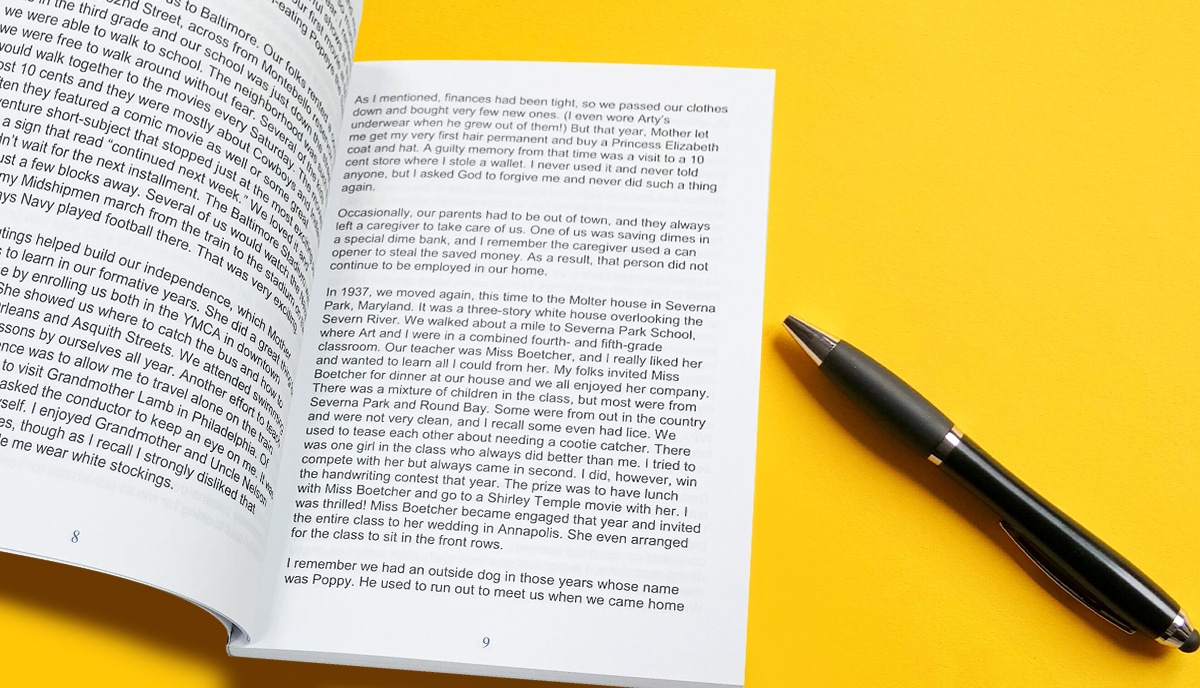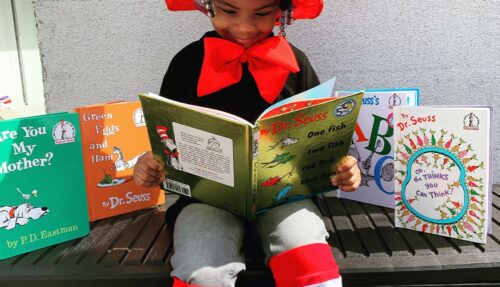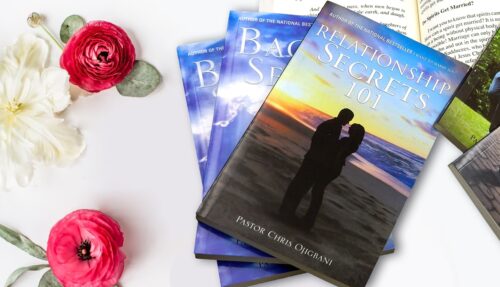Most would-be writers find it easy to get started writing a book. The problem is often finishing it. And whether you want to send your manuscript to editors and agents or you intend to print and self-publish, you need a complete manuscript. In this post, we discuss how to finish writing your book.

How to finish writing a book: where to begin?
At QinPrinting, we provide world-class printing services for clients from the business world, entrepreneurs, non-profits, and independent creatives alike. A central aspect of our mission is to make high-quality book printing and binding as accessible and affordable as possible, so that self-publishers can produce books every bit as professional as the mainstream publishing houses. So, while we’re printers not publishers, we know and understand writers. We’ve been working in the industry for over a quarter of a century, after all.
We know from experience that the writers who come to us with completed manuscripts and who’ve developed their interior and cover designs ready to take the next step into print, have often climbed a steep learning curve to get to that point. And one of the most common struggles we’ve become aware of is how to finish writing a book, whether that’s a novel, a children’s story, a memoir, or other work of non-fiction. So, here’s a quick post with some thoughts on beginning and ending your writing projects, and specifically, how to finish writing a book.
Let’s start with some reflections on the very idea of beginnings. The act of beginning is in itself an act of faith, an act of hope, an act which demonstrates, surely, some confidence in the future, in outcomes, in the achieve-ability of an ultimate objective, even if that objective is merely to finish.
Let’s think about this in terms of the craft and practice of writing, and more specifically writing fiction. While we work with many non-fiction authors, fiction is often the area in which writers find most difficulty getting to the end. And many of the same principles and techniques we’ll look at apply equally to non-fiction writers.
There seem to be two key experiences among writers (and novice writers especially) and they seem to be quite opposed one to the other. So, let’s take a look at how to finish writing a book.
The non-starter
On the one hand, there are those who struggle horribly with every demon of distraction and every possible form of procrastination to get anywhere close to the point of actually beginning; writing that first word seems to present itself to such persons as an all but insuperable barrier to any progress at all. Indeed, the worst afflicted may never succeed in starting anything!
The enthusiastic starter (who never finishes)
Then there are those who find nothing easier than to set about a new idea with great enthusiasm and bash out a fair draft of the beginning of a story or a novel; but then they lose heart—usually about halfway through—or latch onto another, newer idea and start another beginning. The worst afflicted in this manner may produce, during a lifetime, many millions of beautiful words, but not so much as one completed story.
A writer's most important skill
Learning to finish what you begin is the first most important skill for any writer who wishes to be read and better, be paid by the reader for the pleasure.
It can take a long, long time to learn this in principle – and longer again to learn how to put the principle into practice. You may have your fair share of unfinished works. In truth most of them may not be worth finishing if they are also from a period in your writing life when you were just setting out and hadn’t the foggiest notion about the craft.
But sooner or later, once you’ve honed your craft and developed your storytelling skills, you need to discipline yourself to push through the more complex and tiresome middle section and get to the end. Beginnings are always exciting to write. It’s in the middle that most writers come unstuck.
Writing and revision
One approach which can derail writers early on is a false expectation of what they are meant to achieve in the first draft. Most good writing is writing that has been rewritten multiple times through several iterations. The good news is that your first draft needn’t be good, it only need be finished. Once you get to the end, you can go back and rework it to make it good. But an unfinished manuscript is no good at all. So, write a poor first draft, don’t worry about how good it is, just get it done.
Usually after a quantity and depth of planning commensurate with the length and complexity of the tale to be told, you plunge straight in and get started and you keep going until you reach the end. That’s the only way to finish writing a book. It isn’t always easy. In fact, to be honest with you, it is rarely, if ever easy. It is usually a very mixed bag of anxiety, self-doubt and determination. Grim determination.
And here’s a paradox for you: the beginning of the craft of writing usually only starts after you’ve finished. Because finishing the first draft of anything is only to have stumbled over the first of many, many hurdles that must be leaped over before you can reach the real finishing line of subsequent printing and publication.
There are the hurdles of developmental editing (does the plot work? Is there sufficient conflict? Is the pace right? Is it consistent and satisfying? Is the conclusion both logical and surprising?) There are the hurdles of characterization, phrasing, dialogue, description and on and on in seemingly endless rounds of revision.
Good writing is rarely finished in one go
And there’s another fact that comes out of this extended metaphor of the hurdle race: you have to do several laps of the circuit before the race is over and you can truly say that the job is finished and the race is won.
Why are there so few professional sportspeople? Why are there even fewer hurdle racers? Because to achieve even moderate success in such an endeavor requires determination, resilience, a willingness to fail, fall, pick yourself up and push on and fail again and push on regardless, to train until you fear you might die of it; and such powerful single-mindedness is rare. And it must always be cultivated.
So, we began this post talking about beginnings. Without beginnings there can be no endings. And every time you begin, you face the prospect of failure. And every time you begin, you must drive yourself on regardless by the determination to succeed. This is the only way we know how to finish writing a book.
The only good reason to start something is because you intend to finish it. The only way to reach the finishing line is to get started.
When you've finished your book — talk to us!
Once you’ve finished your book and you’re ready to get it printed, get in touch. As we said before, we have over 25 years’ experience in the industry and a first-class reputation with self-published authors and independent creatives all over the world. We’d love to put our expertise, experience, and enthusiasm at your service. You’ll have worked very hard on finishing your book, so why not honor all that work by printing the most beautiful edition yet? We can’t wait to work with you!











